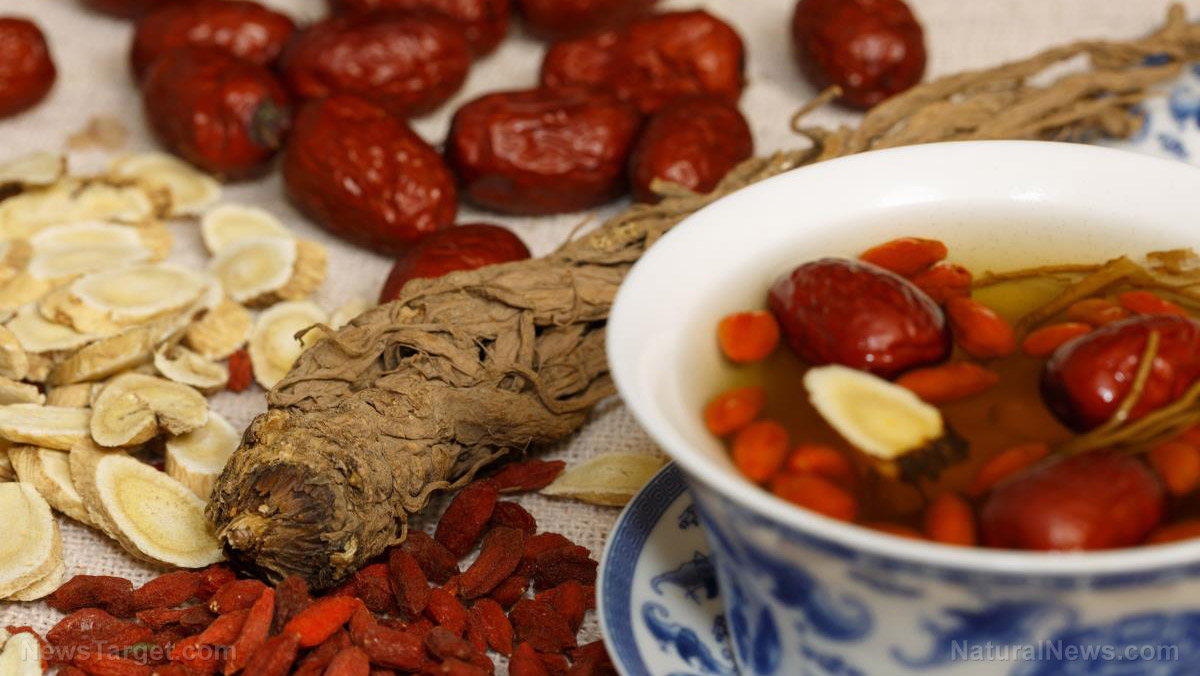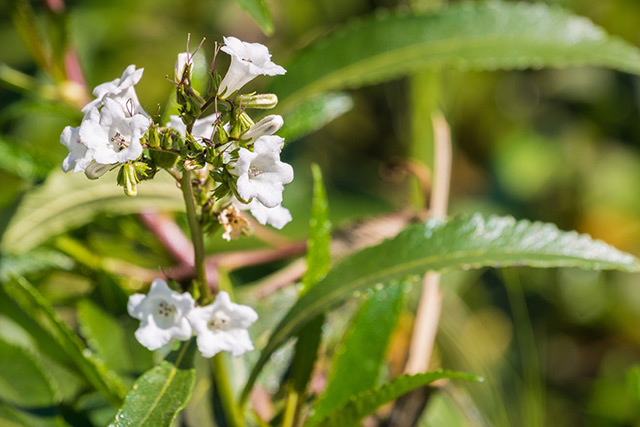Chinese skullcap protects against brain disorders by preventing neuronal death
10/03/2019 / By Evangelyn Rodriguez

Scutellaria baicalensis, also known as Chinese skullcap, is a flowering plant that belongs to the mint family (Lamiaceae). It has been used in traditional Chinese medicine (TCM) for over 2,000 years. TCM practitioners value S. baicalensis for its ability to treat conditions caused by inflammation. Researchers, on the other hand, have studied this plant extensively due to its abundance in beneficial phytochemicals, such as flavonoids, glycosides, and glucuronides. In a recent study published in The American Journal of Chinese Medicine, researchers from different universities in Taiwan investigated the bioactivity of one of the main active components of S. baicalensis, baicalein. They found that baicalein can be used to treat brain disorders caused by glutamate excitotoxicity. Their study is the first to demonstrate this activity of baicalein in the brain.
Baicalein can inhibit glutamate release and protect neurons from excitotoxicity
For their study, the researchers used rats to evaluate the effects of baicalein on glutamate release and glutamate neurotoxicity in the hippocampus. The hippocampus is the part of the brain involved in the formation of new memories. It is also associated with learning and emotions. Cell degeneration in the hippocampus is linked to the aging process and the onset of neurodegenerative diseases like Alzheimer’s. Hence this small but crucial part of the brain is the focus of many studies.
Recently, interest in the health benefits of flavonoids — bioactive compounds that are present in plants — has increased, particularly in their beneficial effects against neurodegenerative diseases. Baicalein, the compound used in this study, is a flavonoid that can be isolated from S. baicalensis. The researchers found that baicalein inhibits depolarization-induced glutamate release in the rat hippocampal nerve terminals (synaptosomes). On the other hand, chelating the extracellular Ca2+ ions and blocking presynaptic Cav2.2 (N-type) and Cav2.1 (P/Q-type) channel activity prevent this inhibition.
Glutamate is the most abundant neurotransmitter found in the brain and the central nervous system. Neurons in the brain use it to communicate with each other. Glutamate is important for neural circuits involved with synaptic plasticity – that is, the ability of synapses to strengthen or weaken signaling between two neurons over time. This ability contributes to learning and memory formation. However, when massive amounts of glutamate are released from synaptosomes into the extracellular space, it causes excitotoxicity or neuronal death. Chronic excitotoxicity is linked to ischemic stroke and various neurodegenerative diseases, such as amyotrophic lateral sclerosis (ALS), Alzheimer’s disease, and Huntington’s disease.
After performing whole cell patch-clamp experiments, the researchers reported that baicalein reduced the frequency of miniature excitatory postsynaptic currents without affecting their amplitude. They also observed that administration of baicalein in rats prior to the intraperitoneal injection of kainic acid — a cyclic analog of glutamate — substantially attenuated kainic acid-induced neuronal cell death, c-Fos expression, and the activation of the mammalian target of rapamycin (mTOR) in the hippocampus. c-Fos is a proto-oncogene expressed in some neurons after depolarization, which is an event that occurs as part of neuronal communication. c-Fos expression is considered as a marker for neuronal activity. Reduced mTOR signaling, on the other hand, is believed to delay the pathology of age-related neurodegenerative disorders.
The researchers noted that their study is the first to demonstrate the ability of baicalein to inhibit glutamate release from hippocampal nerve terminals and protect against kainic acid-induced excitotoxicity in vivo. (Related: Flavones in Chinese skullcap can improve bone mineralization.)
Based on their findings, the researchers concluded that the biological activity of baicalein in the brain makes it a valuable natural compound that can be used to treat brain disorders related to glutamate excitotoxicity.
Sources include:
Tagged Under: aging, alternative medicine, Alzheimer's disease, baicalein, Brain disorders, brain health, chinese skullcap, cognitive function, cognitive health, disease treatments, flavonoids, Glutamate, glutamate excitotoxicity, herbal medicine, Herbs, hippocampus, inflammation, kainic acid, mTOR, natural cures, natural medicine, neurodegenerative diseases, neuroprotective, neurotoxicity, phytonutrients, prevention, research, Scutellaria baicalensis, TCM, traditional Chinese medicine
RECENT NEWS & ARTICLES
COPYRIGHT © 2017 BRAIN NEWS



















